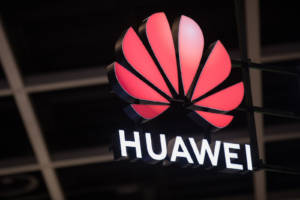MTS has begun an experiment to sell cars in mobile phone stores

MTS has reached an agreement with the car distributor MB RUS (formerly Mercedes-Benz RUS) to place AITO Seres M7 hybrid cars in the company's flagship showroom, which is located in the Galeria shopping center in St. Petersburg . A representative of MTS told RBK about this. He did not disclose how the telecom operator will earn money in this model or other terms of cooperation.
According to Andrey Gubanov, CEO of the MTS retail chain, the main goal of the project is to increase the traffic of the outlet. After the project was launched, the traffic of the salon increased by a quarter, Gubanov claims. If the project is successful, MTS intends to place cars in other salons that are suitable in size for this, and open new ones taking into account the sale of cars. Currently, the operator has ten salons that can accommodate cars, but the option of placing them opposite the salon is being considered. In total, MTS now has more than 4.2 thousand communication salons in Russia.
AITO cars are produced jointly by the Chinese corporation Huawei and the automobile company Seres (a partner of the Dongfeng automobile concern). "We are currently communicating with the international offices of Xiaomi and Huawei, but everything will depend on whether potential partners enter the Russian market with cars. At the moment, we see that the Chinese model of selling cars in the showrooms of electronics manufacturers is working, and we believe in this project," Gubanov said.
RBC sent inquiries to the international offices of Huawei and Xiaomi.
Gubanov also noted that the company could start selling cars directly, rather than through a distributor, including online . In 2023, the Ozon marketplace began selling cars on its platform, and later, in 2024, Wildberries, MegaMarket, and Yandex Market also began selling cars.
Why sell cars in communication storesAccording to the results of 2024 , the Mall Index (reflects the number of visitors per 1,000 square meters of retail space) was 2% lower than in 2023, and in the first quarter of this year - 4% lower than in the same period last year, says Mikhail Vasiliev, Head of Research and Consulting at Focus Technologies. At the same time, the audience of telecom operator stores at the end of the first quarter was on average 4-7% lower than last year's figures, depending on the region and type of location. "Products in this category are some of the most "convenient" in terms of ordering online, especially gadget models that the consumer has already dealt with before. You see all the important characteristics and can choose what suits you best. For clothes, for example, this is less typical; there is a higher probability that the selected item will not suit you for some reason: fabric quality, size, cut, etc.," Vasiliev explains. According to him, this applies equally to both federal network outlets and telecom operator stores, both in terms of purchasing devices and related products, and in terms of connecting communication services.
Online , in turn, cannot fully replace the emotional pleasure of visiting public spaces and spending time with loved ones during shopping and leisure, Vasiliev noted. According to him, against this background, many shopping centers are now increasing the number of partners in the "leisure and entertainment" category, which allows them to retain their audience. "Therefore, from the point of view of experimenting with various concepts, collaborations with other market participants may well be appropriate here. But, of course, to assess the economic effect of such steps and build an optimal strategy, it is necessary to take into account the presence of a real possibility of potential synergy, the degree of intersection of audiences with interests in, for example, "cars", "smartphones", etc.," the representative of Focus Technologies emphasized.
Overall, the average daily audience of shopping centers in Russia by the end of 2024 compared to 2019, the last year with classic seasonality in consumer behavior, decreased by 23%. The main factors during this period were lockdowns during the COVID pandemic , sanctions policy, a savings model of behavior and the departure of foreign brands, and increased competition with online sales channels, Vasiliev noted.
However, MTS assured that the number of visitors to their communication stores remains at the level of the previous year.
Independent auto expert, former president of the Russian Automobile Dealers Association (ROAD) Oleg Moseev noted that car distributors today are also actively looking for non-standard sales channels to reach a new audience, from shopping centers to marketplaces, and now — communication stores. Such initiatives do not always become large-scale, but they provide an opportunity to test new communication formats. In the case of MTS, the interest for the distributor, according to him, is obvious: the operator has a large amount of data on clients — geolocation, frequency of trips, communication costs, including roaming. All this allows you to accurately segment the base and offer cars to those who are potentially ready for such a purchase, the expert says.
Moseev is convinced that mobile phone stores are unlikely to become a full-fledged sales platform: it is physically impossible to display a car due to lack of space. “Their online sales in Russia are still quite limited. There is growth, but on the scale of the entire market, we are still talking about “pieces” and not mass volumes. New brands require a test drive, and used cars require trust and transparency, which is still lacking in the market. Therefore, even those marketplaces that formally sell cars online are in practice tied to offline: work is carried out with the client , video showings, condition checks,” Moseev concluded.
Read PionerProdukt .by in Telegram .



























































